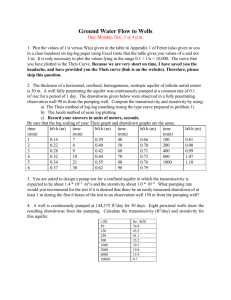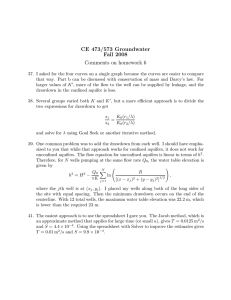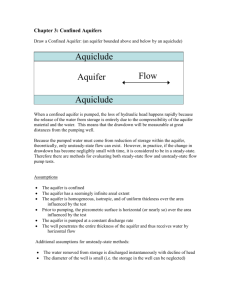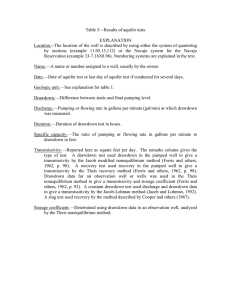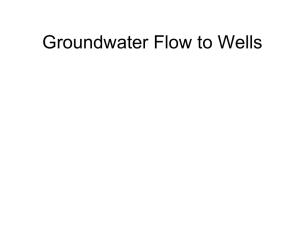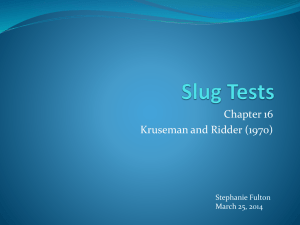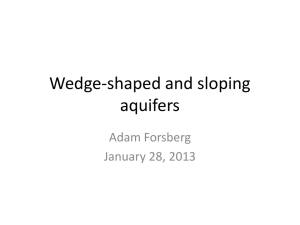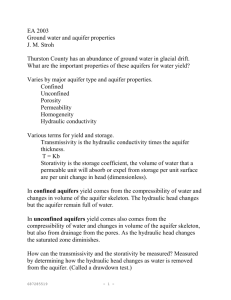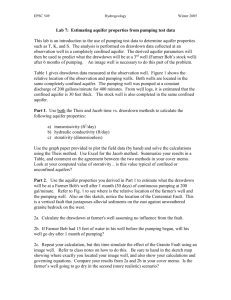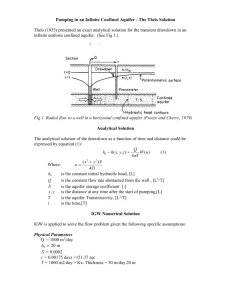Chapter 11 Large-Diameter Wells
advertisement
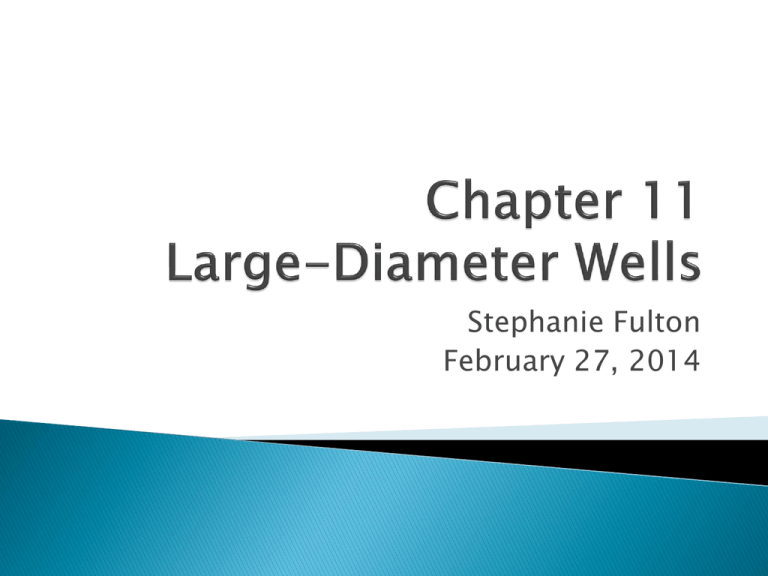
Stephanie Fulton February 27, 2014 Difference from other methods ◦ Well storage previously assumed negligible ◦ Must be taken into account When is “large” diameter large? Two methods ◦ Fully penetrating well in a confined aquifer ◦ Partially penetrating well in an unconfined anisotropic aquifer Assumptions ◦ ◦ ◦ ◦ Confined aquifer Unsteady-state flow Fully penetrating large-diameter well so storage cannot be neglected Similar to other methods (Theis equation) except for the well function Well function F(u,α, r/rew) accounts for the size of the well For 1/u and α = (10-1, 10-2, 10-3), select a value for r/rew using look-up tables in Annex 11.1 ◦ α is a function of well radius and storativity For long pumping times, F(u,α, r/rew) can be approximated with the Theis equation well function W(u) (Equation 3.5) Early drawdown data yields unreliable results ◦ Data curve can be readily matched with more than one type curve but estimated S values differ by an order of magnitude Transmissivity (KD) is less sensitive to the choice of type curve Large-diameter wells are often partially penetrating, in which case another solution is needed. ◦ Drawdown reaches a max when t > DS/2K ◦ Drawdown can be estimated using an equation analogous to Equation 10.7: Unconfined, unsteady-state flow Homogeneous, anisotropic, uniform thickness Partially penetrating large-diameter well Well diameter is not small so well storage cannot be neglected SY/SA > 10 Type A curves ◦ Early-time drawdown ◦ Boulton and Streltsova (1976) developed a well function describing the first segment of the S-curve typical of unsteady-state flow in an unconfined aquifer Type B curves ◦ Late-time drawdown ◦ Curves result from Streltsova’s equation for a small diameter, partially penetrating well in an unconfined aquifer ◦ Applicable for long pumping times when the effect of well storage is negligible ◦ Modifed form of the Dagan solution (1967):
